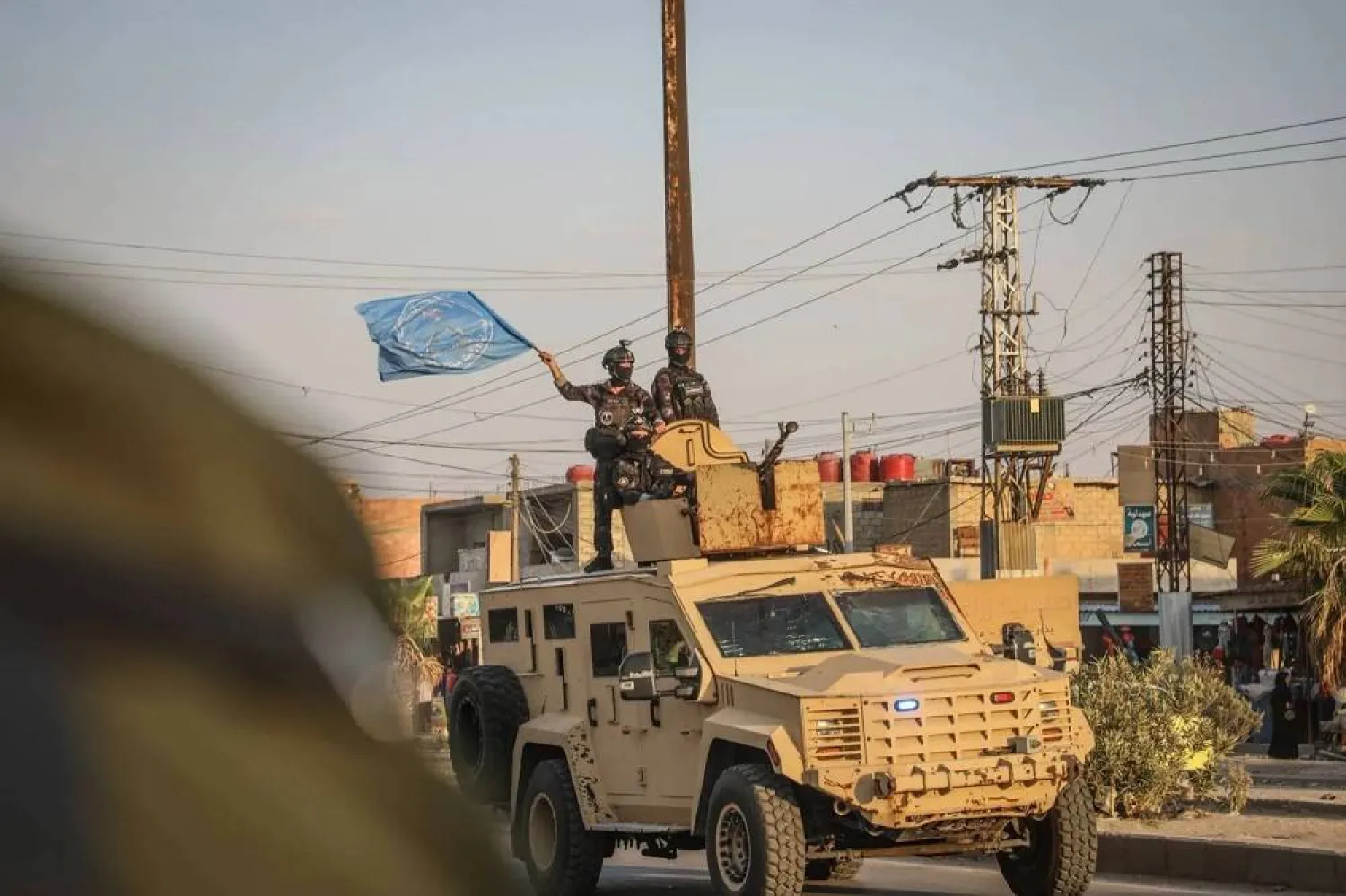A spokesman for the US-backed Syrian Democratic Forces (SDF) denied reports that the Kurdish-led group was given a 30-day deadline to integrate into the Syrian army, saying it was impossible to hand over their weapons amid rising violence and renewed ISIS threats.
Speaking to Asharq Al-Awsat, SDF spokesman Abgar Daoud said: “We reject surrendering our weapons in light of the escalating violence in southern Syria and increasing ISIS threats.”
Daoud was responding to reports that Damascus had set a one-month deadline for the SDF to join the defense ministry’s military structures.
“Amid ongoing instability in Syria, the surge in violence, and the growing danger posed by ISIS, it’s unrealistic to expect the SDF to disarm,” he said.
The SDF, a key partner of the US-led coalition in the fight against ISIS, has expressed readiness since the beginning to become part of a future Syrian state, Daoud added.
“We are open to joining the Syrian army through a constitutional agreement that recognizes the uniqueness of our forces,” he said, proposing a unified military bloc under the army’s banner in the areas they control.
Moreover, Daoud said the latest meeting between SDF leader Mazloum Abdi and US Ambassador Tom Barrack was “positive,” and that more talks were planned with the Syrian government to resolve outstanding disputes.
This was the second high-level meeting between the US envoy and Abdi in a month. The first took place in Damascus on July 9, and was attended by Syrian ministers of defense, interior, and foreign affairs, along with the head of intelligence and French envoy Jean-Francois Guillaume, as well as senior coalition military figures.
Daoud said the SDF has maintained high-level operational coordination with Damascus since the collapse of the previous regime and had avoided military confrontations in recent months. “We are not seeking war with any side,” he stressed. “But we will defend our people wherever we are.”
Local sources in Raqqa and Hasakah reported that the SDF held a show of force this week, deploying heavy weaponry and military units in the cities of Raqqa, Hasakah and Qamishli.
New checkpoints were erected, and patrols increased on key roads amid fears of escalating tensions, especially after Arab tribal forces in Sweida pledged support to local Bedouin factions.
The SDF controls most of Hasakah province in the northeast, Raqqa city, Tabqa, and parts of Deir Ezzor's northern and eastern countryside.
It also holds Kobani (Ain al-Arab) in Aleppo’s eastern countryside, and has recently expanded to include Deir Hafer, Maskanah and Mansoura, along with villages south of the Euphrates River. The total area under SDF control is estimated at about one-third of Syria.
In comments to a German newspaper earlier this month, Abdi said the SDF had no need to disarm if the agreement signed with President Ahmed al-Sharaa on March 10 was implemented.
“We are fully committed to the terms of the agreement,” he said. “Implementing it would make the SDF part of the Syrian army, and there would be no need to disarm now or in the future, since the responsibility for protecting northeast Syria would then fall to the Syrian army.”







